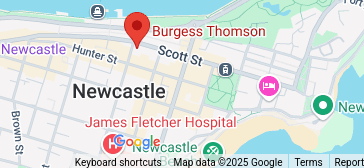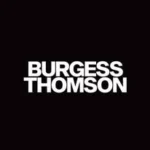Will Disputes
Wills & Estate Planning
Newcastle’s Specialist Will Dispute Lawyers at Burgess Thomson
At Burgess Thomson, we understand that will disputes can be emotionally taxing and complex, often involving deep family conflicts and challenging legal intricacies. As Newcastle’s leading specialists in will disputes, we are dedicated to providing our clients with professional, compassionate, and effective legal support during these difficult times.
How Burgess Thomson Can Help with Will Disputes
Will disputes arise for various reasons, but commonly include concerns about the validity of the will, the mental capacity of the testator at the time the will was made, undue influence, or outright fraud. Our experienced team is skilled in navigating these delicate issues with tact and expertise.
Assessing the Validity of a Will
Our legal team can help determine if a will reflects the true intentions of the testator. This includes examining if the will was made free from undue influence, duress, or fraud, and whether the testator possessed the necessary testamentary capacity to understand the implications of their decisions at the time the will was created.
Representation in Court
Should it become necessary to contest a will, Burgess Thomson has extensive experience representing clients in court. We work tirelessly to ensure that your side of the story is heard and that the outcome respects the true wishes of your loved one.
Negotiating Settlements
In many cases, will disputes can be resolved without going to court. Our lawyers are proficient in negotiating settlements that honour the testator’s intentions while maintaining family relationships wherever possible.
GET A QUICK QUOTE
Enter your details for an obligation free quote.
LEARN MORE
We’ll work hard to get you the best outcomes. Speak with our Wills & Estate Lawyers to discuss your options.
Why Choose Burgess Thomson for Will Disputes?
Expertise and Experience
With years of specialised experience in will disputes, our lawyers have a deep understanding of the complexities involved in these cases. We are well-versed in the latest legal precedents and have a successful track record in both settling and litigating will disputes.
Personalised and Compassionate Service
We know that challenging a will can be one of the most stressful experiences of your life. At Burgess Thomson, we approach every case with empathy and respect, ensuring that you feel supported throughout the process. Our goal is to make this difficult time a little easier for you and your family.
Local Knowledge
As a firm deeply rooted in Newcastle, we have a profound understanding of the local legal landscape and community dynamics. This local expertise gives us an edge in handling your will dispute with the appropriate sensitivity and acumen.
Comprehensive Support
From evaluating the validity of a claim to executing a detailed litigation strategy, our team provides comprehensive support. We are with you at every step, ensuring that you are well-informed and confident in your legal standing.
If you are facing a will dispute, or if you suspect that a will does not accurately reflect the wishes of a deceased friend or relative due to undue influence, lack of testamentary capacity, or other contentious factors, Burgess Thomson can help.
Contact us today to discuss your case and find out how we can support you in ensuring that justice is served in honouring the true intentions of your loved one.
FAQ's
A claim of this type asserts that the person making the Will lacked the necessary mental capacity to understand the ramifications of making the Will or that they were not in control of their faculties. A person can only make a Will if they had the understanding and ability to comprehend the implications of making a Will.
In NSW, a testator is presumed to have testamentary capacity, so a challenge must arise on the basis of sufficient evidence. The general test applied by the courts involves the following questions in relation to the person’s capacity at the time of making the Will:
- Did the testator understand the effect of making a Will?
- Could the testator remember the assets included in their estate to be distributed under the Will?
- Did the testator understand that peopled are entitled to provisions from the estate under the Will?
- Did the testator suffer from any disorder inhibiting their ability to make rational decisions under the Will?
Duress is a type of external pressure which may be imposed on the testator when making their Will. Generally speaking, it involves a threat of some type of action which is used to coerce a testator into doing something against their wishes, for example executing a Will in favour of the person threatening them. A person who is acting under duress will not be held responsible for the actions performed. Therefore, a Will made under duress would be invalid.
In NSW, there are three elements which must be established to prove that a person was acting under duress:
- A threat of death or serious injury was made to the testator or a member of his/her family.
- The threat(s) being of such a kind that a person:
- of ordinary firmness and strength of will;
- of the same maturity and sex of the testator; and
- in the same position as the testator,
- would have succumbed to the threat and executed the Will against their own wishes.
Undue influence involves the coercion of the testator into making the Will in circumstances where no threat is made. Usually, this will involve people taking advantage of an older relative so that the Will is not a true expression of the testator’s wishes. There are two forms of undue influence which may arise:
Express Undue Influence:
Express undue influence occurs when the execution of a Will results from undue pressure exerted upon the testator to the extent that their free and independent judgement has not been exercised.
Presumed Undue Influence:
Undue influence can also be presumed based on the relationship between the testator and the party exerting influence over them. Although there is no exhaustive list of parties which fall within this presumption, examples of parties that would enliven the presumption include parents, children, guardians, trustees and solicitors.
For parties outside of this list it must be shown that the relationship is such that the person is in a position to exercise dominion over the testator by reason of trust and confidence.
Fraud can occur in several different ways, but common examples are where a person poses as someone they are not and executes the Will of someone else in favour of themselves, or where a testator is tricked into signing the Will.
Where someone poses as someone they are not in the execution of a Will, for someone to challenge the Will they must provide evidence that the person who executed the Will is not the testator named in the Will. This may involve verifying identification documents, cross-referencing signatures or other means to prove that the Will is fraudulent.
A person may also be tricked into signing a Will in different circumstances. For example, a Will could be prepared on behalf of a testator who is then lied to about the effect of his/her will, or told that the document was not a Will, but rather a different document such as an enduring guardianship.
Unconscionable conduct occurs when a person acts unconscientiously by exploiting a special disability or disadvantage of a testator to their own benefit. Generally, to establish this there are two key considerations:
- The testator suffers from a condition/disability that makes them unable to make proper judgement; and
- The other party ought to, or is aware of this condition/disability, and takes unfair advantage of it to their benefit.
A particular example of this relevant to older persons is where they do not have the mental faculties to appreciate the nature of the Will they are executing, and another person takes advantage of this condition to give the whole of the estate to themselves.
Visit Law Society of NSW website for more frequently asked questions on wills and estates.




